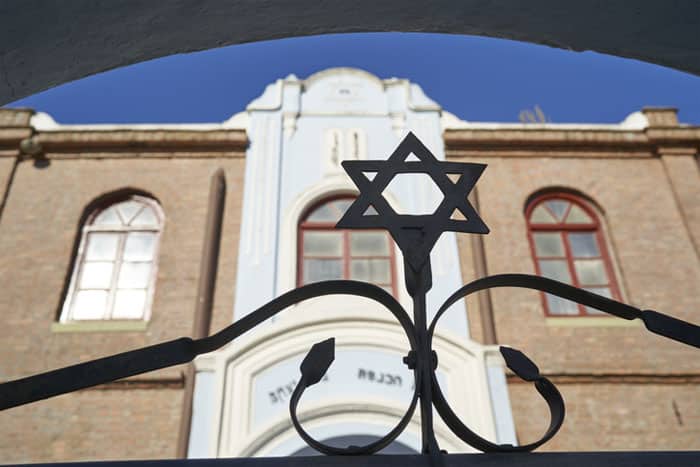
I doubt that it has ever been easy to keep synagogues afloat. Picture this: A member of the temple’s board of directors blocks the door to the sanctuary as a crowd begins to gather in celebration of a b’nai mitzvah. The back story explains why. The father of the bar mitzvah boy was notorious for not paying his bills. While he lived in one of the neighborhood’s nicest houses, he had bounced several checks for temple dues and b’nai mitzvah fees. If this guy got away with the ceremony, there was little chance he would be heard from again. Fortunately, the crisis was averted. The father handed over the requisite amount in cash, and the event went on as scheduled.
I recall this so vividly since the bar mitzvah boy was a close friend; and the board member was my dad. Talk about awkward!
If you think it is easier to generate temple funds today, you are mistaken. In the 1960s, when this story took place, it is estimated that 60% of Jews belonged to a temple. By 2020, according to the Pew Research Center, only 35% of American Jewish adults said that they or someone in their household was a synagogue member.
And then came COVID …
While the ability to “attend” services through streaming provides a wonderful flexibility, it reduces the incentive to join a temple. Want to watch Yizkor services on Yom Kippur? Check the web and take your pick. For some Jews, it seems pretty compelling that not only don’t you have to fret about parking, you also don’t have to pay a dime in membership fees. I have heard from a number of people that after the horrors of Oct. 7, they have begun to view services over the internet. Fantastic, but that doesn’t help a synagogue’s bottom line.
As a professor of economics, I have long taught that if consumers are unwilling to pay for a product or activity, in the interest of efficiency, the resources used to create that good or service should be reallocated to something buyers are more eager to support. That makes perfect sense, except in the case of what economists call positive externalities. When collective benefits exceed individual ones, you end up with too few of those goods being produced.
What, you might be wondering, does this economics lesson have to do with synagogues?
A lot of people appreciate having a temple in their neighborhood. But if you don’t support it now, will it be there when you want it in the future?
A lot of people appreciate having a temple in their neighborhood. It attracts Jews to the area, and you can take solace in the fact that should you need a synagogue for a life event or for any other reason, you can always join one. But if you don’t support it now, will it be there when you want it in the future?
I lived for two decades in bucolic Williamstown, Massachusetts, where the “downtown” shopping area consisted of exactly one block. For much of that time, there was a small bakery. I would walk down the street to the bank or to the post office (remember when we went to banks and post offices?) and smell the pleasant aromas emanating from the bakery. I can’t say I ever went in and purchased anything there: Like most of the neighborhood, my family relied on the baked goods section at the large supermarket in the next town. But I loved knowing that one day I might just stop in.
Alas, that day never arrived. The bakery struggled financially until it closed. In retrospect, we would have been better off if those of us who appreciated having a town bakery, but didn’t shop there, had thrown a few bucks through the door each time we strolled by. If we had, I suspect they would have stayed in business.
Don’t let today’s temples be yesterday’s small-town bakeries. Even if you have no plans to attend the services, classes, lectures, concerts, celebrations, and other events that synagogues so enthusiastically offer these days, consider joining one. Who knows, you may become a more active member than you expected.
The sight of a defunct synagogue is heartbreaking. At a time when Judaism is under assault, let’s keep our most important institutions, our houses of worship, financially viable, vibrant, and strong.
Morton Schapiro is the former president of Williams College and Northwestern University. His most recent book (with Gary Saul Morson) is “Minds Wide Shut: How the New Fundamentalisms Divide Us.”






















 More news and opinions than at a Shabbat dinner, right in your inbox.
More news and opinions than at a Shabbat dinner, right in your inbox.